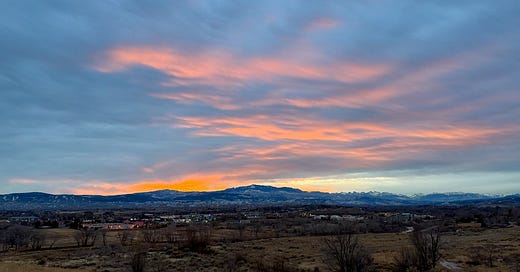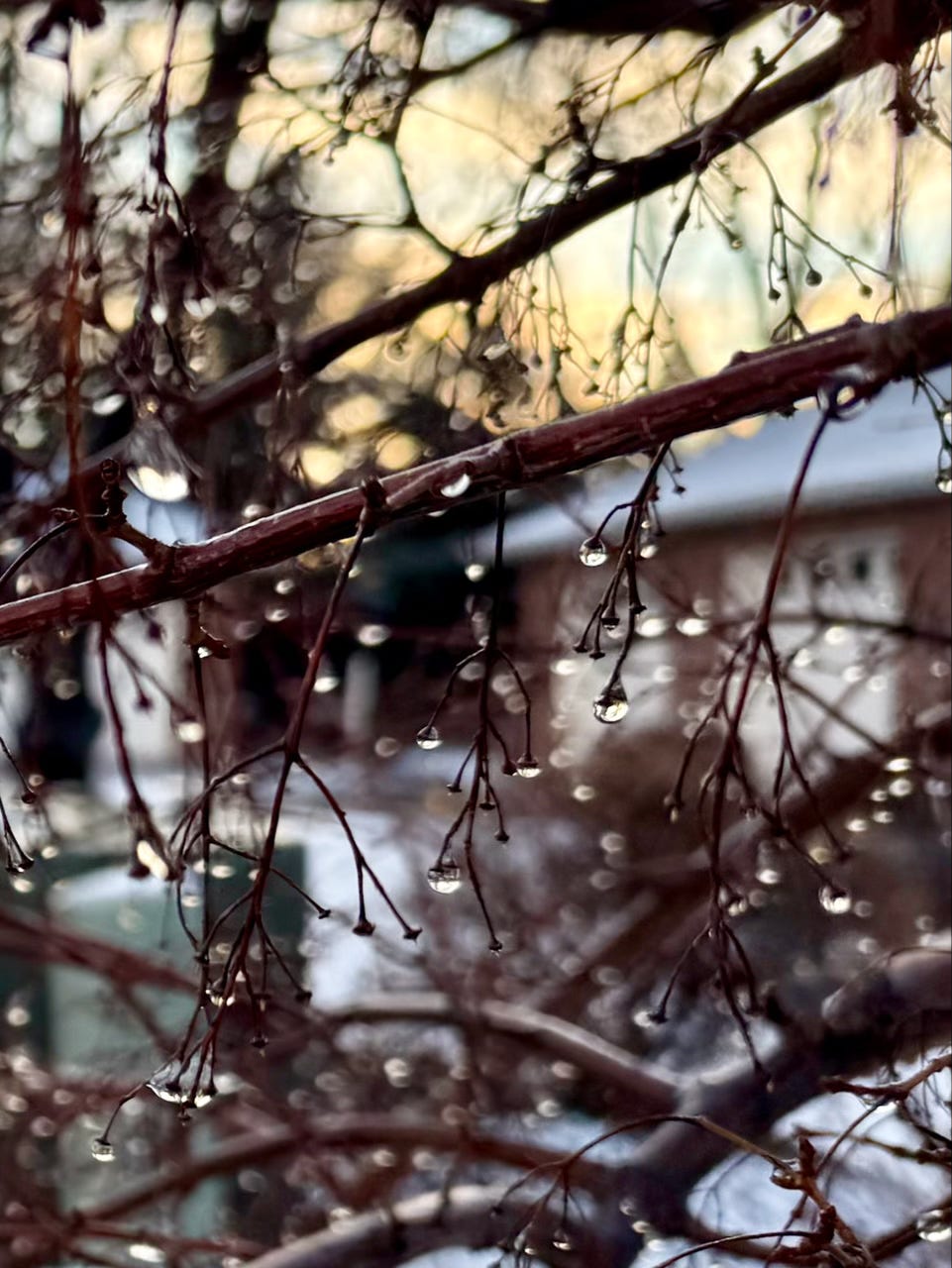When I am stuck and cannot dig myself out, I go home to nature. I head for someplace where I can hear myself think.
—Susan J. Tweit, Walking Nature Home, A Life’s Journey
Creating chaos is a terrifyingly effective way to neutralize opposition. Chaos and confusion overwhelm the senses, flood the brain with too much information and render the body helpless, at least momentarily. There’s a whole field of research about how overstimulation shuts down our brains, our nervous systems and our bodies.
We freeze, the way a deer crossing the road stops dead in the glare of bright headlights, their brain paralyzed by too much visual input. Throwing up a confusion of information can be a survival strategy, as when a hawk flushes a covey of quail, and the plump birds burst into noisy flight, ping-ponging this way and that, confounding the hunter.
The rapid-fire actions emanating from DC seem designed to freeze any opposition or at the very least, keep that opposition unfocused and ineffective. In the face of that kind of chaos, the best thing to do is stop and re-set our systems, slow our hammering hearts and clear our minds.
One sure way to do find calm and focus is to get outside into what Henry David Thoreau called “the actual world,” the world of more-than-human lives who weave the living skin of this earth and quietly support our own by their breathing and being: Nature.
Time in nature calms us and soothes not just our physical systems, it restores our ability to think clearly, to make good decisions and take effective action, to be empathetic and compassionate, and even to love ourselves.
All of which we need now more than ever.
Finding Stillness and Calm to Act Effectively
Nature itself is not actually silent: the wild world is as full of sound as it is of life. But its sounds—the whooshing of wind in evergreen boughs, the haunting calls of sandhill cranes, the rest of a grasshopper’s jaws, the scream of a hunting hawk …beat with the same rhythms of our bodies, unlike the adrenaline-pumping din generated by our beeping and thumping and roaring technology. Incessant noise overwhelms the quiet voice of our inner wisdom. —Walking Nature Home, A Life’s Journey
“Noise” in this case, is both sound and information. Turning off our devices and stepping outside (or even just sitting quietly and looking out the window at a slice of nature outside) calms our over-hyped systems, quiets the anxious chatter in our minds and allows us to hear our inner wisdom and focus on what is most important.
Here’s a practice for calming and finding stillness:
Go outside or sit near a window. Turn off or silence your devices (phone, smartwatch, etc) and place them face down so you can’t be distracted by visual notifications.
Take a few deep breaths, inhaling all the way into your belly, pausing and then exhaling fully from your belly.
Close your eyes and listen: What do you hear through any human-generated sounds? Notice and greet singing birds, rustling tree branches, scampering of squirrels, humming of bees. Breathe into the rhythm of life around you.
Take a deep breath. (You can open your eyes if you need to, but often our sense of smell is keener if not dominated by our vision.) What do you smell beyond human-generated odors? Name the smells you recognize.
Fun fact: Humans are a visual species, thus, our sense of smell is pretty depauperate. Dogs have about 50 olfactory receptors to each one of ours, and each canine smell receptor is also much larger. A dog’s sense of smell is about 1,000 times more sensitive than ours, which is why dogs sniff their way around a landscape, “reading the news with their nose.”
Open your eyes, and if mobility is not an issue, walk briskly for a few minutes while looking around and noticing the details in your surroundings: movement, color and form. Loosen your muscles, straighten your spine, and deliberately breathe out stress and breathe in calm.
Let whatever peace you have found permeate you, body, mind and spirit. Now you are ready to act!
Blessings, Susan






Thank you for your thoughtful post. I really need to relearn being more receptive to the calming effect of nature than to the constant drumbeat of negative stimulation in our modern society.
I think of the times in Florida when my parents' fights got the better of me. I would walk into the woodland surrounding Lake Kanapaha and climb on the limb of a huge live oak and just listen. Once or twice it started to rain, but the leaves of the huge oak partially protected me. If I looked down I saw numerous apparently paired neon orange spots. They were the spots on the underside of a web-building spider in the genus Leucauge (Orchard Orbweavers). I probably would not have noticed them otherwise.
My visit to the live oak always helped and I almost felt as if it were a protective force that gave me the courage to go back and deal with the problems as best I could.
This is such a helpful post, in part because I haven't seen anyone take this perspective anywhere else. You have uniquely applied your expertise to help people access somatic responses and emotional intelligence.